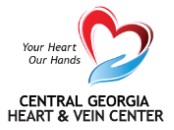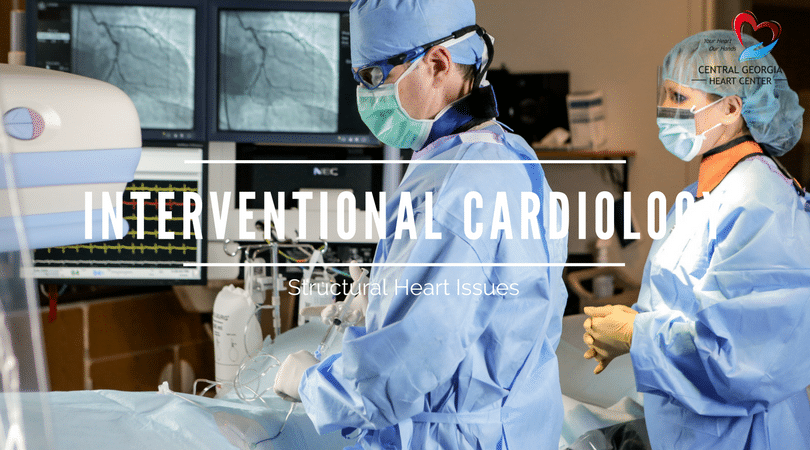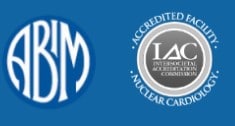One of the types of services performed at Central Georgia Heart Center is interventional cardiology. This refers specifically to the catheter based treatment of structural heart diseases. Cardiologists like Dr. Jones, Dr. Ellis, and Dr. Tharpe use angioplasty procedures to help patients with structural heart issues. We have a few different interventional cardiology services that help patients manage their cardiovascular system.
Cardiac Catheterization or Angiogram
Cardiac catheterization, also known as an angiogram, is used to diagnose some heart conditions. A catheter is placed in a blood vessel in your arm or leg and then lead to your heart. The procedure itself is very routine and done after numbing the injection site. Frequently, dye is placed in te tube to help gain a clear visual of the heart or other affected areas. This procedure allows an interventional cardiologists to see how well blood is flowing in a specific location. An angiogram is done in order to ensure the correct treatment for structural issues.
Coronary Angioplasty
When you have a blocked or narrowing artery, a coronary angioplasty may be performed. It is a common treatment for those with atherosclerosis or other structural issues that require interventional cardiology care. During this procedure, a small tube is inserted like in an angiogram. Then a catheter with a balloon is inserted in the weakened or blocked location. The balloon expands and relieves the blockage. Sometimes, a small mesh stent is then inserted to reinforce the artery.
Peripheral Angioplasty
A peripheral angioplasty ( also known as a percutaneous transluminal angioplasty,) is when a small flexible tube is placed in a narrowed artery. Following the same catheter system as stated above, a peripheral angioplasty a stent is put into place. Interventional cardiology doctors tend to use this form of care only after other treatments have not worked.
Other Interventional Cardiology Treatments for Structural Heart Diseases
Central Georgia Heart Center also performs other treatment options for structural heart diseases. A full list can be seen here. Here are a few treatment options:
- Holes In The Heart- If a patient has a small hole in the walls of the heart that affect the flow of oxygen rich blood, a transesophageal echo or interacardiac echo may be performed.
- Atrial Spetal Defect- Half of all holes in the heart close on their own. Large holes that are nit closed can be repaired through catheter treatment or open heart surgery in more extreme cases.
- Narrowed Valves- This is a simple congenital heart defect and it effects the opening of a heart valve. Frequently, this condition is treated with a catheter procedure.
Many of the Central Georgia Heart Center cardiologists perform interventional procedures. Visit our team page for more information about our staff.





